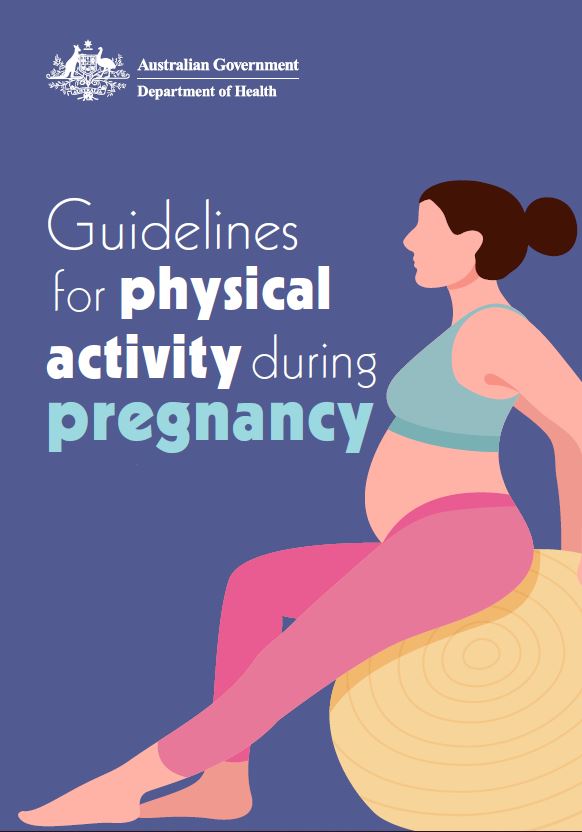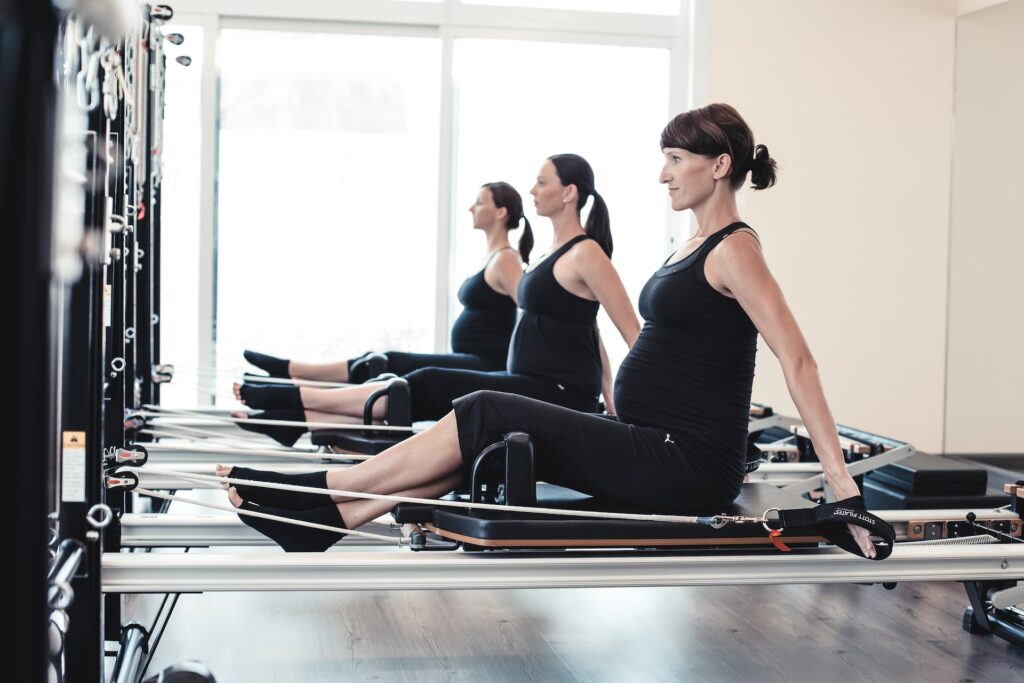A guide to exercise during pregnancy and Pivotal’s NEW prenatal classes

Do you know the recommended guidelines for exercise during pregnancy?
If your answer was no (or maybe you’re anxious to exercise while growing bub) you’re not alone. So many pregnant mamas aren’t aware of the benefits of, or know how to, exercise safely during pregnancy. Unfortunately (like many things relating to pregnancy because it can differ from person to person) there’s a lot of ambiguity due to a lack of communication and education, which can result in unnecessary fear!
At Pivotal, we love caring for expecting mamas and being part of their journey. We believe empowering women with knowledge about their changing body and giving them the tools needed to optimise their pregnancy and postnatal recovery is, frankly, PIVOTAL. Our aim is to ensure you are as comfortable as possible throughout the duration of your pregnancy—physically and mentally—by combining hands-on treatment, education and safe exercise. We do this by offering 1:1 sessions in our studio, home exercise programs and small group pregnancy classes.
Why exercise during pregnancy?
Under guidance from your healthcare professional (OB and/or midwife), exercise during pregnancy has been shown to significantly reduce maternal-fetal disease and complications. Some other benefits include:
- reduced risk of gestational diabetes mellitus (GDM)
- reduced risk of gestational hypertension (GH)
- reduced risk of pre-eclampsia (PE)
- preventing excessive weight gain during pregnancy
- helping reduce the risk of prenatal depression as well as the severity of depressive symptoms during pregnancy
- improved mood and sleep
- potentially supporting a shorter, less complicated labour and fewer neonatal complications
Women’s bodies undergo enormous change during pregnancy—physically, physiologically and mentally. As the baby grows so does the mama, and her muscles have to work extra hard to support the extra weight. As you can imagine, they can become tight and fatigued (while, at the same time, other support structures in the body start to relax in preparation for delivery).
This is where mobility and stretching is so important to ensure ease of movement through everyday tasks, and to minimise risk of pain and injury throughout pregnancy. In addition, hormonal changes cause the ligaments that support your joints and pelvis to soften, providing less stability to their surrounding structures. This means we need to strengthen the muscles in and around the pelvis (back, hips, glutes, legs, pelvic floor) to provide more stability and minimise your risk of pain and muscle fatigue.
So, what do the guidelines recommend for exercise?

The guidelines recommend 150-300 minutes of physical activity per week, ideally 30-60 minutes of moderate intensity physical activity on most, preferably all days of the week. They also encourage a combination of aerobic and strength exercise, with two sessions a week being strength/resistance training based.
However, we need to highlight that these recommendations are for those with an uncomplicated pregnancy. Additionally, external factors such as busy work schedules, other children, injuries etc. have not been taken into consideration and we know all too well that sometimes there are barriers that may prevent us from achieving these guidelines. Therefore, at Pivotal we will work with you to create an exercise program, schedule or classes that are achievable and realistic for expecting mama’s to still reap the benefits.
Support your growing bub and body, and immerse yourself in the Pivotal family!
Pivotal’s brand new pre-natal group exercise class is now open for all expecting mamas on Tuesdays at 4.30 pm (from September 2022). Before starting any exercise, an initial consultation with one of our physios will ensure we’re providing the best possible workout for you and bub! We’ll ask lots of questions to get to know you, thoroughly screen your history, current and previous pregnancies, as well as your exercise experience. You and your little one’s health is pivotal to us and we want to do everything we can to support you safely through your journey. New clients can call Reception to book their first consultation appointment and further classes can be booked directly through our website.
~ Sophie Alderslade, Physiotherapist


References:
The Royal Australian and New Zealand College of Obstetricians and Gynaecologists. Exercise during pregnancy. The Royal Australian and New Zealand College of Obstetricians and Gynaegologists. https://ranzcog.edu.au/RANZCOG_SITE/media/RANZCOG- MEDIA/Women%27s%20Health/Statement%20and%20guidelines/Clinical-Obstetrics/Exercise-during-pregnancy-(C-Obs- 62).pdf?ext=.pdf Published March 2020.
Birsner ML, Gyamfi-Bannerman C. Physical Activity and Exercise During Pregnancy and the Postpartum Period ACOG Committee Opinion Summary, Number 804. Obstet Gynecol. 2020; 135(4):e178-88. doi: 10.1097/AOG.0000000000003772
Hallam, Taryn 2020, Introduction to Physical Activity and Exercise in Pregnancy, lecture notes, Australian Physiotherapy Association (APA) Women’s Life Stages – Level 1 (WLS1.1), Women’s Health Training Associates (WHAT).